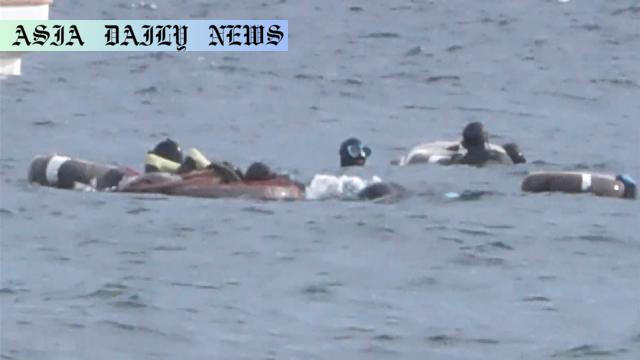Fishing season begins as Wajima’s ‘ama’ divers resume mozuku seaweed harvesting despite challenges brought by last year’s earthquake.
- Fishing season begins for Wajima’s ‘ama’ divers post-quake.
- Mud and seabed changes lead to sporadic seaweed growth this year.
- Mozuku harvesting limited to three hours a day and 20kg per diver.

Introduction: The Return of Ama Divers Amid Challenges
The vibrant and historic tradition of ‘ama’ divers in Wajima, Japan, marks a cautious return with the reopening of the mozuku seaweed fishing season. Following the significant disruptions caused by the Noto Peninsula earthquake in 2024 and the subsequent heavy rains, these resilient and skilled female free divers are once again venturing into the waters. The return, albeit under limitations, highlights the community’s perseverance and commitment to their craft.
The Aftermath of the Noto Peninsula Earthquake
In 2024, the Noto Peninsula earthquake caused profound changes to the seabed, raising parts of the sea floor and leaving mud deposits in its wake. These geological shifts presented major challenges for the local ‘ama’ divers. The heavy rains in September of the same year compounded the difficulties, further altering the underwater ecosystem. Mozuku seaweed growth, once abundant, has become unpredictable, growing sporadically across the seabed. This has forced the diving community to reconsider their approach to harvesting while adapting to a transformed marine environment.
Restrictions in Mozuku Seaweed Harvesting
This year’s mozuku seaweed harvest is characterized by stringent restrictions to ensure sustainability. Harvesting activities are limited to just three hours a day, and each diver is allowed to collect no more than 20 kilograms—a sharp reduction compared to pre-earthquake allowances. While these measures may ensure long-term ecological balance, they also significantly impact the income and livelihood of the local diving community. Nonetheless, the divers remain hopeful and committed, focusing on rebuilding their livelihoods within these constraints.
Role of Tradition in Overcoming Adversity
The cultural significance of ama divers cannot be understated. These free divers, who traditionally dive without scuba gear, embody a unique heritage that dates back centuries. Their indomitable spirit shines through as they navigate the dual challenges of environmental changes and economic pressures. With resilience deeply ingrained in their culture, these women stand as a symbol of hope and determination for the region, gradually restoring a semblance of normalcy to their community’s way of life.
Looking Ahead: The Path to Recovery
While the journey to full recovery remains challenging, efforts are underway to better understand and adapt to the altered marine ecosystem. The local community continues to monitor the seabed changes and explore sustainable ways to improve mozuku seaweed harvests. As the tradition of ama diving perseveres, their dedication ensures that Wajima’s coastal heritage will survive and thrive, despite the obstacles. The resilience of these women, coupled with support from local authorities, offers a path forward not just for the divers but for the entire region.



Commentary
The Strength of Tradition: Resilience of Ama Divers
The story of Wajima’s ama divers is one of resilience, adaptability, and reverence for tradition. In an age where technological advancements dominate industries, the continued practice of free diving without scuba gear speaks volumes about the cultural and historical significance of this profession. These women not only embody a deeply rooted tradition but also exhibit extraordinary strength and resolve, especially in the face of adversity. Their determination to bounce back after seismic and climatic disruptions is truly commendable.
Environmental Challenges Demand Innovative Solutions
The aftermath of the earthquake has underscored the fragility of marine ecosystems and the profound impact of natural disasters on traditional livelihoods. The sporadic growth of mozuku seaweed points to an urgent need for deeper ecological monitoring and sustainable practices. Collaborative efforts between the divers, local authorities, and environmental scientists could pave the way for solutions that ensure both ecological balance and economic sustenance. Investing in research and leveraging the divers’ firsthand knowledge could potentially mitigate future risks.
A Testament to Human Perseverance
At its core, the story of Wajima’s ama divers is a reminder of humanity’s ability to adapt and overcome. In an era of rapid technological transformation, the revival of a centuries-old tradition in the face of modern challenges is awe-inspiring. While their journey to full recovery may be steep, the world can draw inspiration from their story. The ama divers serve as a symbol of hope, resilience, and an undying commitment to preserving a way of life that connects past generations to the present.